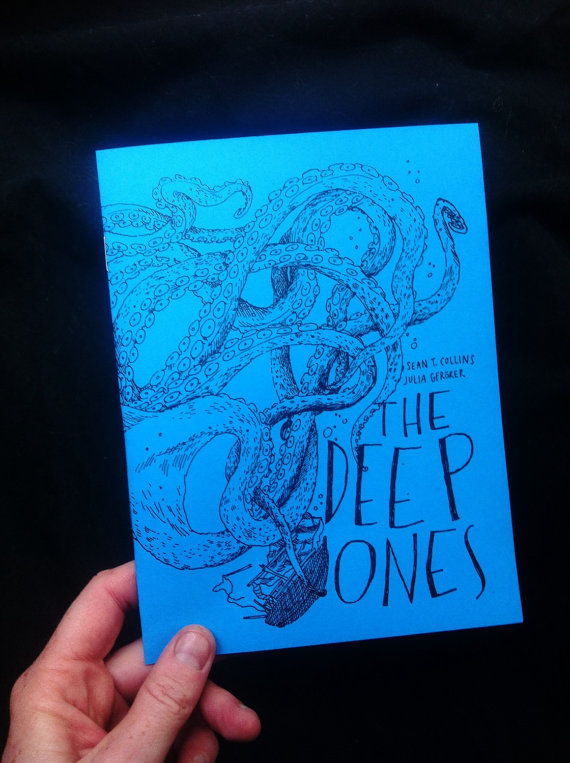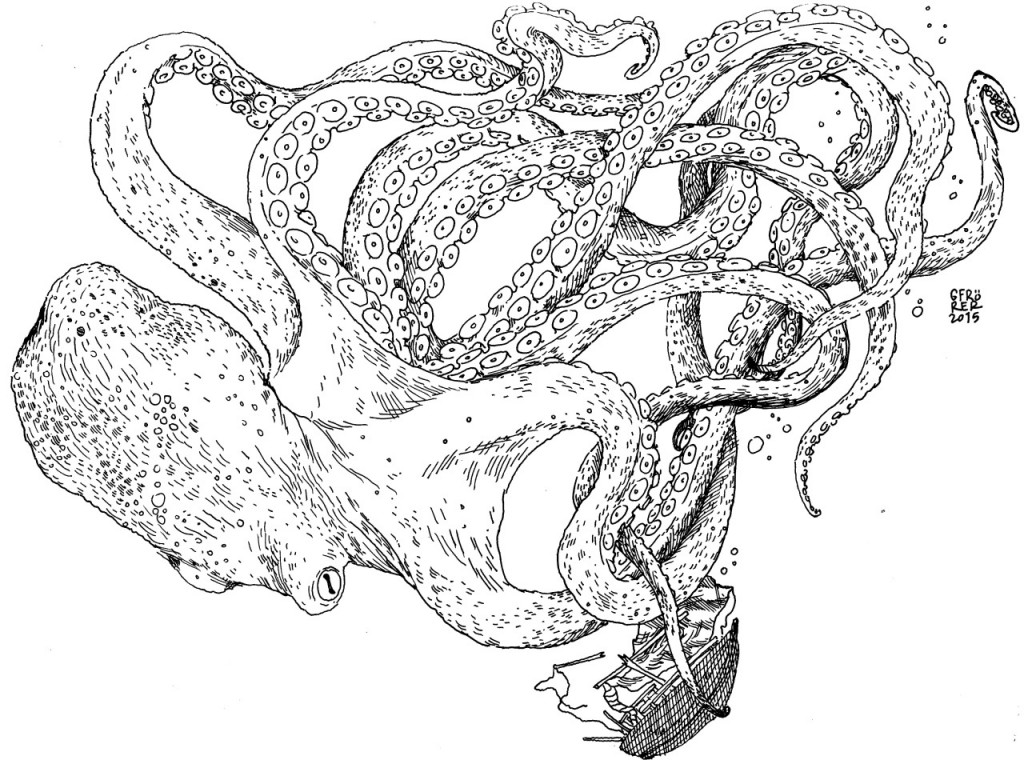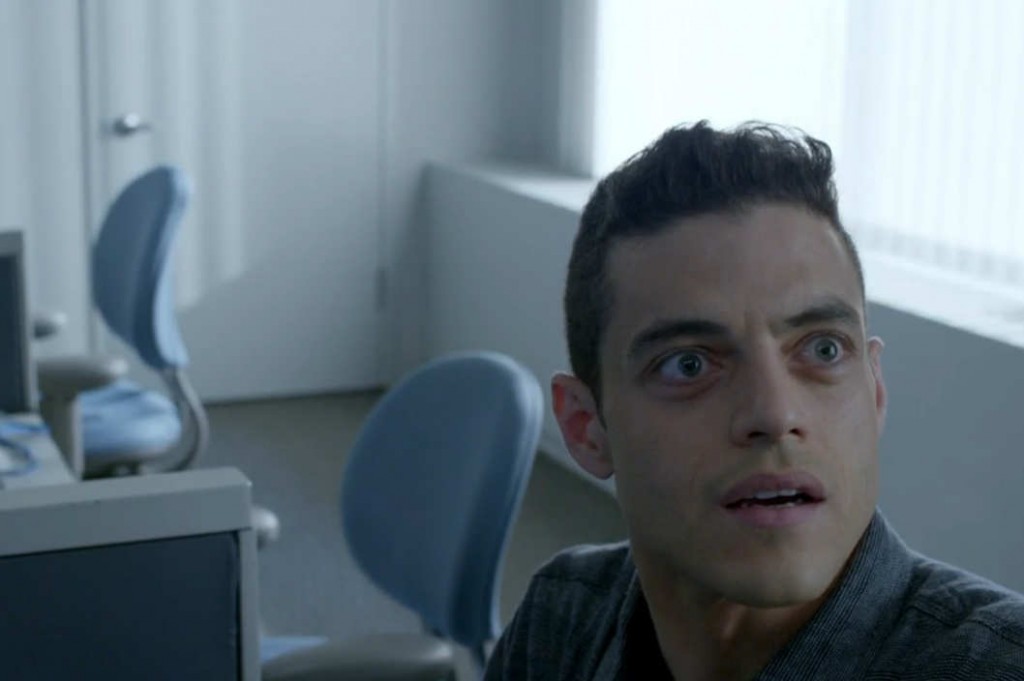Archive for September 29, 2015
The Boiled Leather Audio Hour Episode 41!
September 29, 2015The Walking Dead in Westeros
We’re comparing two of the biggest shows on television in this episode of the Boiled Leather Audio Hour. One of them is an adaptation of a popular staple of nerd culture—a genre work that had only appeared in print before—which has translated its bleak themes, wide scope, and controversial use of violence into a modern-day ratings blockbuster. The other is Game of Thrones.
That’s right—the BLAH Boys are taking on The Walking Dead, and its current spinoff Fear the Walking Dead, by contrasting the shows and their source material to Game of Thrones and A Song of Ice and Fire. How does their treatment of violence in an unforgiving world of real and supernatural menace differ? What do the relationships between the original works by George R.R. Martin, Robert Kirkman, Tony Moore, and Charlie Adlard and their adaptations by David Benioff, D.B. Weiss, and AMC’s land of a thousand showrunners reveal about their respective ideas, ideals, aesthetics, and ethics? Which shows really deserve our moral outrage, and why? We’ll be examining all these questions and more. And one of us, at least, will be getting really freaking worked up. Enjoy!
Download Episode 41
Sean on the Fear the Walking Dead pilot.
Hiders & The Deep Ones
September 28, 2015Hiders and The Deep Ones, my two most recent comics with Julia Gfrörer, are now available for purchase as minicomics at Julia’s Etsy store.
“Fear the Walking Dead” thoughts, Season One, Episode Five: “Cobalt”
September 28, 2015What makes both Fear and The Walking Dead flagship exceptional television, literally, is how they break the usual rule against assuming that depiction equals endorsement in fiction. In both shows, violence is repeatedly depicted as both necessary and, given the post-apocalyptic context, virtuous. Yes, the brutality is made to feel ugly, but it’s invariably less ugly than the alternative. All of the show’s dramatic weight rests upon the idea that if you were in these people’s shoes, you’d want to do the same things to survive. And man, fuck that noise. Like the zombies locked into that stadium in their thousands then inexplicably left unguarded, I want out.
I reviewed the latest installment of TV’s most morally repugnant franchise, Fear the Walking Dead, for Decider. Much, much more on this coming soon.
“Masters of Sex” thoughts, Season Three, Episode 12: “Full Ten Count”
September 28, 2015But there’s a bigger problem here, the biggest one Masters of Sex Season Three faced and failed to surmount: None of this matters, because none of it happened. It is indeed possible to make historical fiction that dances between the raindrops of reality while still traveling in the direction of the storm: Boardwalk Empire deftly incorporated real gangland figures into the story of its imaginary or heavily fictionalized ones, and wound up become a story about why the latter never amounted to anything while the former became famous. The Americans mostly avoids actual people except in TV soundbites, but still maintains the basic battlefield arrangement of the Cold War in the Reagan Era, using its foregone conclusions for dramatic effect.
By this point, however, Masters has proven it can’t handle historicity. No matter the liberties taken with the particulars of their lives, Bill Masters, Libby Masters, and Virginia Johnson were real people. The broad strokes of their personal lives, when they met and how they lived and when they got married and when they got divorced, are all known to us. The specific and tangible nature and impact of Masters & Johnson’s work on human sexuality is known to us in great detail. So unless the show is suddenly going to become alternate-history science fiction, we know Bill and Virginia get together. We know he was never arrested, much less publicly humiliated or legally convicted, for pandering or molestation. We know their publisher didn’t destroy their reputations out of pique. To suggest that any of that might come out differently is either to imply you’re willing to alter the timeline of society in a way that distorts rather than reveals, or to admit you’re openly wasting our time. I want a temporal refund.
I reviewed the bad finale for the bad third season of Masters of Sex for the New York Observer. Failure can be fascinating.
“Empire” Thoughts, Season Two, Episode One: “The Devils Are Here”
September 23, 2015Empire’s first season thrilled its gargantuan audience because it solved many of the problems endemic to catfight-filled melodramas without jettisoning the genre’s pulpy pleasures. The New Golden Age of TV has seen its share of “prestige” soaps, most notably Downton Abbey and Mad Men, but those shows dressed the suds up in respectable period drag. Meanwhile, more gleefully trashy fare like True Blood, Desperate Housewives, and Gossip Girl had a tendency to get stretched thin by overextended casts and peripheral storylines so pointless that you could barely remember the details after the cliffhangers and commercial breaks.
From the beginning, Empire did things differently. Creators Lee Daniels and Danny Strong and showrunner Ilene Chaiken keep the focus almost entirely on the nuclear (meltdown) family of musical genius/magnate Lucious Lyon and his formerly incarcerated but equally astute ex-wife Cookie; you could count the scenes in which either they or one of their three children (bipolar businessman Andre, semi-closeted singer-songwriter Jamal, and ambitious m.c. Hakeem) failed to appear on two hands with fingers to spare. No worries about superfluous scenes here.
Meanwhile, calling the series fast-paced would be like calling Usain Bolt a champion jogger. This is a show in which a minor character once shot a guy, got arrested, went to jail, and had people complaining “I can’t believe he’s still locked up” in the space of 12 seconds. (We counted.) There’s never a sense that we’re stuck a holding pattern of boring bullshit to kill time until the next big moment — it’s all big moments, one after another, with only the genuinely catchy original musical numbers for a breather.
It’s game time, bitches: I’m covering Empire Season Two, starting with tonight’s premiere, for Rolling Stone.
“Fear the Walking Dead” thoughts, Season One, Episode Four: “Not Fade Away”
September 21, 2015While great art generally fills some kind of need in the hearts and minds of its audience, art need not be as utilitarian as all that. Fabergé eggs, extended remixes, the Wet Hot American Summer fart track: In these cases and many others, enjoyment is self-justifying. Hell, by some definitions, art is inherently unnecessary, which is precisely what elevates making it from the pursuit of food, shelter, sex, and survival.
But this ain’t dancing when nobody’s watching or writing the great American novel we’re talking about here. This is “Not Fade Away,” the fourth episode in what looks increasingly likely to be the entirely superfluous first season of Fear the Walking Dead. With the largest fanbase in television built right in, this spinoff series could have gone anywhere. Instead it made an infected-style beeline straight for one of the most traveled paths in the history of the zombie genre: When the dead rise, the army runs amok. Whether you’re talking about 28 Days Later and its sinister soldiers, its sequel 28 Weeks Later and its well-intentioned but incompetent and ultimately indiscriminate occupying army, Day of the Dead and its tiny band of undisciplined bullies and martinets, this story has been told over and over, in a much tighter and more engaging way. It’s difficult to watch Fear and think this particular take on the tale is worth telling.
I reviewed this week’s Fear the Walking Dead, which was bad, for Decider. Danny Boyle, contact your attorneys.
“Masters of Sex” thoughts, Season Three, Episode 11: “Party of Four”
September 21, 2015The New Golden Age of Prestige Drama has a hallowed tradition of really, really bad dinner dates. “Soprano Home Movies” showed Tony and Carmela’s lovely weekend at the lake with their relatives and friends Janice and Bobby Baccala devolve into insults, recriminations, and violence. Walter and Skyler White endured several brutal evenings with Hank and Marie Schrader. The less said about Cersei Lannister’s wine-saturated soirees with the Starks and Tyrells in her orbit, the better. Clearly, “Party of Four,” this week’s Masters of Sex, hoped to be an entrant into that pantheon. Unfortunately for everyone involved, it was a meal we’d have been better of skipping.
I reviewed this week’s Masters of Sex, which wasn’t good, for the New York Observer. I think its failings were indicative of the failings of the show as a whole this season.
STC x SPX
September 18, 2015Come see me and Julia Gfrörer at SPX in Bethesda this weekend! We will be at table M1 selling copies of our new minicomics The Deep Ones and Hiders, never before available as such, and we look like this. Julia is also selling prints and her usual assortment of excellent comics, some of them also written by me. (Unfortunately my remaining run of Flash Forward by me and Jonny Negron didn’t make the trip, but they’re still around!)
Murderers’ Row: The Greatest Emmy Awards Lineups Ever
September 16, 2015Best Actress in a Drama, 2015
The Lineup: Claire Danes (Homeland), Viola Davis (How to Get Away With Murder), Taraji P. Henson (Empire), Tatiana Malsany (Orphan Black), Elisabeth Moss (Mad Men), Robin Wright (House of Cards)
Is this the strongest year for actresses in Emmy history? We say yes. The range of genres and tones represented by 2015’s nominees is crazy wide, with prestige dramas, smash-hit soaps, political potboilers, sci-fi imports, and postcards from Shondaland standing shoulder to shoulder. The performances are equally varied, equally strong, and virtually indispensable for their shows: Can you imagine an Empire without Henson, a Homeland without Danes, or an Orphan Black without Malsany? Even if you could, why would you? For women actors on television, this really is a New Golden Age.
Emmy Awards 2015: Who Should Win, Who Will Win
September 15, 2015BEST DRAMA
The Nominees:
Better Call Saul (AMC)
Downton Abbey (PBS)
Game of Thrones (HBO)
Homeland (Showtime)
House of Cards (Netflix)
Mad Men (AMC)
Orange Is the New Black (Showtime)WILL WIN: A failure to award Matt Weiner’s masterpiece Mad Men one more time before it heads off to the big Coke commercial in the sky would be almost willfully perverse. If its most direct points of comparison — Weiner’s alma mater show The Sopranos and its AMC brother-in-arms Breaking Bad — could pull off the final-season win, the house that Don Draper built can do it too.
SHOULD WIN: Never mind the naysayers: Mad Men is an all-time top-five television show and deserves the trophy for its melancholy, valedictory suite of final episodes. That said, no series on TV thinks bigger or strikes harder than Game of Thrones, though it will take the departure of both itsBad/Mad rivals for it to finally take home the gold.
ROBBED: The biggest drama here may well be the shows that didn’t make the cut. Showtime’s uncompromising psychodrama The Affair took home the Golden Globe but didn’t even manage a nomination. FX’s political thriller The Americans gets better and better seemingly with every episode but has yet to garner a nod, even as its weaker counterparts Homeland and House of Cards keep racking them up. Fox’s ratings behemoth Empire was a way more entertaining soap than Downton Abbey’s sagging fourth season, while Boardwalk Empire’s morally merciless final episodes trumped it in the period-piece department. The Marvel/Netflix joint Daredevil was the best live-action superhero-comic adaptation since Tim Burton’s Batman in 1989 (eat it, Chris Nolan). And NBC’s violent visual fantasia Hannibal made almost everything else on TV look like a public-access show.
I wrote up my Emmy predictions for Rolling Stone, though my favorite part of the assignment was writing about all the deserving actors and shows who were robbed of nominations to begin with. So much good TV out there, people.
Hiders
September 15, 2015This is the cover for a minicomic edition of Hiders by me and Julia Gfrörer, previously available only in Study Group 3D, which we’ll be selling at SPX this weekend.
The Biggest Emmy Upsets of the Past 25 Years
September 14, 2015Best Actor in a Drama, 2013
Whether you were in the market for sirloin stake or a big fat ham sandwich, there was plenty on the menu to choose from this year. Jon Hamm and Bryan Cranston did their usual phenomenal work on Mad Men and Breaking Bad. Damian Lewis elevated sometimes shaky material as triple-agent Marine-turned-terrorist-turned-informant Nicholas Brody on Homeland, a role for which he’d won the previous year. But the victory of Jeff Daniels as The Newsroom‘s bloviator-in-chief Will McAvoy was all the more bizarre because of the slightly less top-shelf alternatives available to voters, if that’s what they really wanted. Why not, say, go for Kevin Spacey, who gave great hambone and drawled his way through House of Cards? And if it was fusty and blustery but ultimately good-hearted you wanted, Hugh Bonneville’s take on that template as Downton Abbey‘s Lord Grantham was altogether more appealing.
I wrote about the biggest surprises in recent Emmy history for Rolling Stone. Spoiler alert: 2007 was crazy, man.
“Fear the Walking Dead” thoughts, Season One, Episode Three: “The Dog”
September 14, 2015“Good people are the first ones to die,” says Fear the Walking Dead, doling out INSANELY badass truths to its audience of bored gamers. Is that an unfair characterization? Of the audience, maybe. Of Fear the Walking Dead? I fear it’s not. With the conclusion of “The Dog,” this week’s episode, we’ve reached the halfway point of this short introductory season, and the series has yet to produce a compelling reason for itself to exist—other than “we can make a lot of money selling grimdark violence to people who will live and die without ever once experiencing such horrors themselves,” that is. Ending with a military takeover of the town is appropriate, because ethically and aesthetically, Fear is basically a gun nut waiting for the UN’s secret Muslim invasion squad’s black helicopters to land, in TV-show form.
“Masters of Sex” thoughts, Season Three, Episode Ten: “Through a Glass, Darkly”
September 14, 2015Bill Masters’s sex surrogacy study may be going south, but fortunately, the same can not be said for his television show. In “Through a Glass, Darkly” (unfortunately the series has not yet solved the problem of its thuddingly obvious episode titles), Masters of Sex served up its first fully satisfying hour of the season. With the exception of a perplexing and unnecessary last-minute twist (more on that later, unfortunately), it was a character study in which every character seemed to be worth studying, a sex drama in which the sex drove the drama and the drama made it sexy. On more than one occasion I said “Nice work, gang!” aloud, as if my capacity for taking pleasure in the show had, like the sexual confidence of the surrogacy program’s participants, been reawakened at last.
I reviewed Masters of Sex Season Three’s first excellent episode for the New York Observer.
9.11.15
September 11, 2015As he followed her inside Mother Abagail’s house he thought it would be better, much better, if they did break down and spread. Postpone organization as long as possible. It was organization that always seemed to cause the problems. When the cells began to clump together and grow dark. You didn’t have to give the cops guns until the cops couldn’t remember the names…the faces…
Fran lit a kerosene lamp and it made a soft yellow glow. Peter looked up at them quietly, already sleepy. He had played hard. Fran slipped him into a nightshirt.
All any of us can buy is time, Stu thought. Peter’s lifetime, his children’s lifetimes, maybe the lifetimes of my great-grandchildren. Until the year 2100, maybe, surely no longer than that. Maybe not that long. Time enough for poor old Mother Earth to recycle herself a little. A season of rest.
“What?” she asked, and he realized he had murmured it aloud.
“A season of rest,” he repeated.
“What does that mean?”
“Everything,” he said, and took her hand.
Looking down at Peter he thought: Maybe if we tell him what happened, he’ll tell his own children. Warn them. Dear children, the toys are death–they’re flashburns and radiation sickness, and black, choking plague. These toys are dangerous; the devil in men’s brains guided the hands of God when they were made. Don’t play with these toys, dear children, please, not ever. Not ever again. Please…please learn the lesson. Let this empty world be your copybook.
“Frannie,” he said, and turned her around so he could look into her eyes.
“What, Stuart?”
“Do you think…do you think people ever learn anything?”
She opened her mouth to speak, hesitated, fell silent. The kerosene lamp flickered. Her eyes seemed very blue.
“I don’t know,” she said at last. She seemed unpleased with her answer; she struggled to say something more; to illuminate her first response; and could only say it again:
I don’t know.
–Stephen King, The Stand
The Deep Ones in print, coming soon
September 9, 2015This is the cover illustration for a print version of The Deep Ones by me and Julia Gfrörer, which we’ll be selling at SPX next week.
“Masters of Sex” thoughts, Season Three, Episode Nine: “High Anxiety”
September 7, 2015Let’s make like Masters and Johnson, dear reader, and analyze a sex scene. Specifically, let’s take a good long look at the scene in which Nora, the smart and dedicated young test pilot for Bill Master’s surrogacy program for treating single patients with sexual dysfunction, takes things a little too far with her initial subject. It’s the highlight of “High Anxiety,” the season’s ninth episode. It’s arguably the high point of the entire season so far.
How “Mr. Robot” Became One of TV’s Most Visually Striking Shows
September 2, 2015Fitting for a show about those occupying society’s technological substrata,Mr. Robot’s characters are often placed at the very bottom of the frame. This leaves massive amounts of headroom that suggests a great weight hanging over their heads, and echoes their isolation: When they’re talking right to each other, they seem alone. In more conventional filmmaking, conversations are cut with the characters looking at each other from opposite ends of the frame, leaving what’s known as “leading room” between their faces that helps convey the physical space they occupy. Mr. Robot inverses the norm by “shortsighting” the characters, positioning their faces at the edge of the frame closest toward the person to whom they’re speaking.
“Shortsighting is unnerving,” Campbell explains. “It further accentuates how fucked-up Elliot’s world is. The idea was to convey the loneliness. That’s the internal dialogue I had with myself: How do we tell that story? How do you get Elliot across?”
The effect goes a long way in selling audiences on the mounting paranoia and dissociation of the show’s main character, hacker Elliot Alderson (Malek). Without the usual pattern to help us intuit spatial relationships, these scenes create the sense that the characters don’t know where they stand in relation to one another. They also remind us of the picture-in-picture, face-against-flat-surface nature of video chatting, which can’t be overlooked on a show this attuned to the alienating effects of technology.
I spoke with Mr. Robot’s director of photography, Tod Campbell, about the show’s gorgeous shot compositions for Vulture. It felt great to write an article about television that focused on pure form. Woo!






